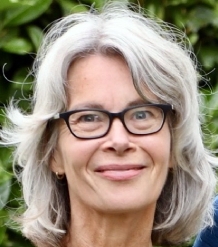How do you think COP26 went?
Professor Gail Whiteman, Professor of Sustainability
I think it’s fair to say that the results from the conference were pretty mixed. There were some strong pledges on the table, and it was good to see some big US names coming back into the discussions – Obama and Pelosi to name but two. But there were disappointments, such as India coming in at NetZero by 2070, despite hopes they would match China in 2060.
It was encouraging to see the finance and business community attending with lots of strong commitments, but I am still worried that there won’t be enough action. The national pledges are not sufficient to keep the world within the safe target of +1.5C. That could be catastrophic. Companies need more ambitious governmental targets and incentives to fast track the low carbon economy.
Professor Steffen Boehm, Professor in Organisation and Sustainability
It was great to see so many people from around the world coming to Glasgow; so many well-meaning minds meeting to move climate negotiations forward.
I know COPs are important, but I’m uncertain that their current format is really delivering the step change in climate action we need. 26 times leaders have met, but the emissions curves keep going in the wrong direction.
Sophie Jackson, 2nd year BSc Business student
I feel an abundance of things: I’m exhausted yet inspired, though my main takeaway is the need for urgency.
It was truly inspiring to see such a large quantity of people marching in solidarity for climate action. Individuals from across the globe are all united as one. Activism has no borders, nor does climate change.
But it would be erroneous not to speak of my disappointment at the conclusions of the conference. There was an absence of action and an abundance of corporate greenwashing.
Luke Henderson, Year 4 Business Economics student
COP26 demonstrated that power is not derived from the inborn values in human nature but rides on the aversion to loss in monetary value. Unfortunately, this has created a tsunami of companies riding the greenwashing wave. Therefore, we have no idea where to direct our attention when it comes to real climate action.
The glimmer of light is that the conversation surrounding COP26 has meant we are looking closer at global leaders to reflect the true values of our society. We must still push for accountability and climate justice.


 Professor Steffen Boehm
Professor Steffen Boehm